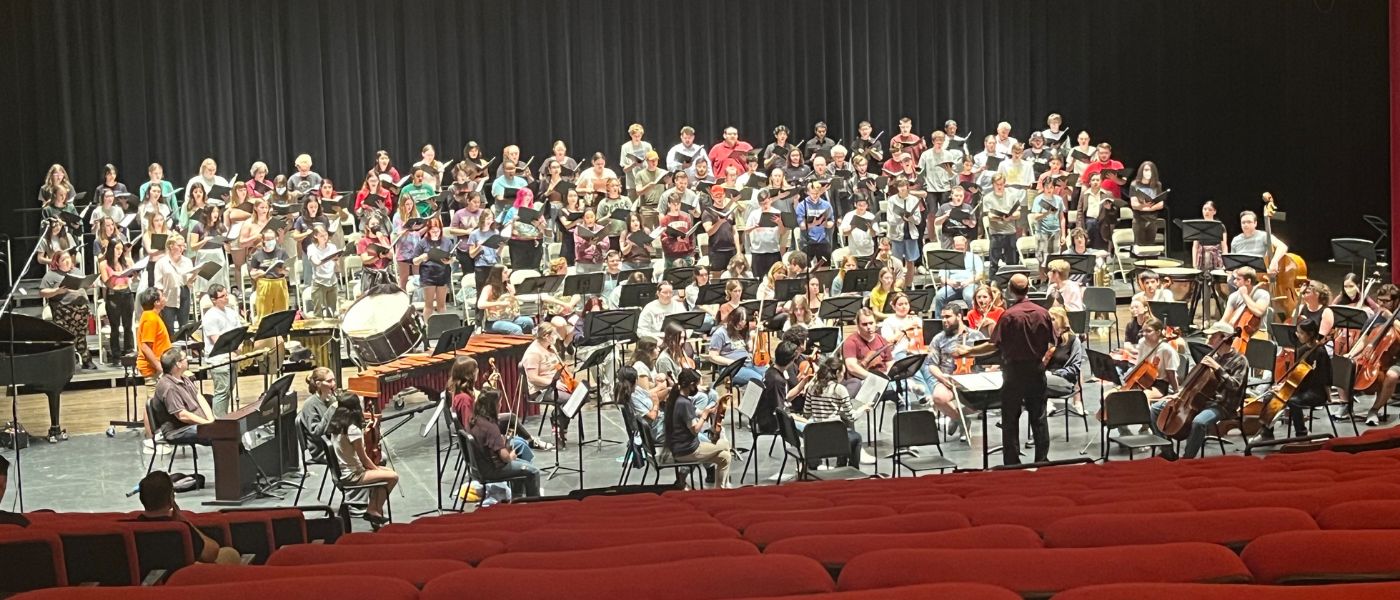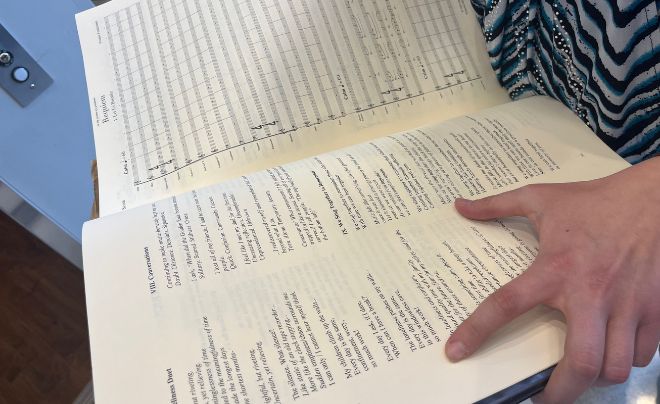We Can Heal Together

The COVID-19 pandemic brought hardship and challenges to communities across the globe. The arts, and in particular music, have long been a place of inspiration and respite.
Saturday, March 4, the UIW Cardinal Singers and soloists join musicians from Trinity University for the premiere performance of “Requiem, for the Victims of a Pandemic” by Yvonne Freckmann, a composer and Trinity University alumna. In her stirring composition, Freckmann sought to grapple with the lingering emotions of the pandemic.
“Requiem” weaves together many themes throughout its movements and verses. The overarching themes of a return to community and interconnectedness are as represented in the work as they were in the process of its composition. It began when Freckmann sought out collaborative support to help the commissioning of the piece and reached out to colleagues in the music community to establish a consortium around this work. Professor William Gokelman, chair of the UIW Music Department, has been a colleague of Freckmann for many years through the Composers Alliance of San Antonio. He was a keen advocate of the commission early on.
“I know him more as a composer, I really had no idea he was also the director of the choirs here, and he  said, ‘let me see if we can make this happen,’” shared Freckman.
said, ‘let me see if we can make this happen,’” shared Freckman.
Gary Seighman and Joe Kneer from Trinity University, as well as the Young Professionals Choral Collective from Cincinnati, also joined the consortium to support turning Freckmann’s inspiration into a reality. Early conversations with these musicians evolved into collaborations as Freckmann composed the piece.
In her creative process, Freckmann expressed that she draws inspiration from the musicians that are going to perform her work, “it's the players that inspire me … so it's a personal connection many times.” For “Requiem,” the choir members, including the UIW Cardinal Singers, were given the opportunity to submit anonymous thoughts about the pandemic that then became the lyrics for the nine choral movements. This was a purposeful decision made by the composer to illustrate the unique, personal experiences had by different people during the pandemic. “I can reflect on my experience, but we all had very different ones,” she said. “I tried to capture a lot of different things in different moments of time.”
The piece captures many of the emotions felt during the pandemic. Through the choral lyrics, the audience is brought back into the emotional space of the pandemic, and feelings of sadness, anger, isolation, fear, disengagement, and guilt, which then move into the final pieces that evoke deliberate hope in looking at the future and moving toward that hope together.
The theme of togetherness is paramount in “Requiem.” The word itself is sung in prolonged unison in both the beginning and concluding movements. The choice to focus on reconnection was integral to Freckmann’s purpose to bring its listeners consolation through a communal experience. This is a goal with ample precedence in music history, and when asked why the medium of music is continuously effective in conveying and evoking emotions, both Gokelman and Freckmann had thoughts.
“That's one of those age-old questions that's been around since the beginning … we know that there are certain areas of the brain that can be reached through music. It’s one of the precepts of music therapy,” reflected Gokelman, who in his leadership role as the Music Department chair also oversees the UIW Music Therapy program.
Freckmann says that music can allow us to feel deeply. It can mark the listener and stay with them. “Even people with dementia, they remember their music and they will shine, they will light up when they hear songs that they recall. It's something that touches me deeply … Let's have some music that reflects what we lived through. And I hope (the piece) does that.”
“Requiem, for the Victims of a Pandemic” under the direction of Gokelman, will premier this weekend as part of the Choral Union Concert featuring pieces by Brian Bondari, Arvo Pärt, and Ralph Vaughn Williams. The concert will be at 3 p.m. Saturday, March 4, in the Laurie Auditorium on the Trinity University campus. The event is free and open to public.

